Seasoned meat is meat that has been enhanced with spices, herbs, salt, or other flavorings to improve its taste, texture, and aroma. Proper seasoning is a fundamental cooking technique that transforms simple ingredients into delicious dishes. Without proper seasoning, even the highest quality meat can taste bland and unremarkable.
Seasoning works by interacting with the meat's proteins and fats, releasing aromatic compounds and enhancing natural flavors. It's not just about adding salt and pepper—it's about understanding how different ingredients work together to create a balanced, flavorful experience.
Table of Contents
- What is Seasoned Meat?
- The Science Behind Seasoning Meat
- Historical Evolution of Seasoning Techniques
- Top 7 Tips for Perfectly Seasoned Meat
- Contextual Limitations of Seasoning Methods
- Popular Spice Blends for Every Dish
- Buying Guide: Choosing the Best Seasonings
- How to Match Seasoning to the Occasion
- Frequently Asked Questions
- Conclusion: Master the Art of Seasoned Meat
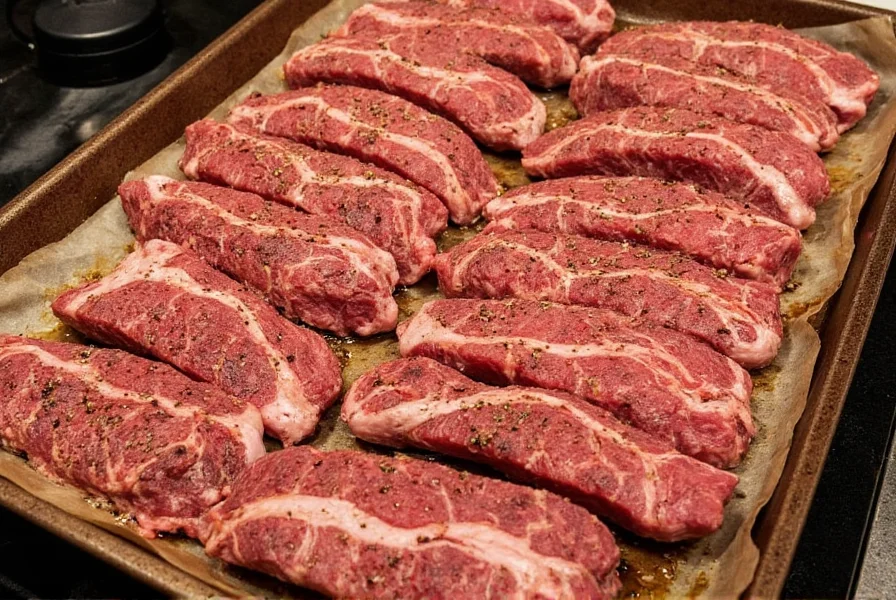
What is Seasoned Meat?
Seasoned meat refers to meat that has been treated with spices, herbs, salt, or other flavorings to enhance its taste and texture. This process is fundamental in cooking, as it transforms simple ingredients into flavorful dishes. Proper seasoning not only improves flavor but also helps retain moisture and create a desirable crust during cooking.
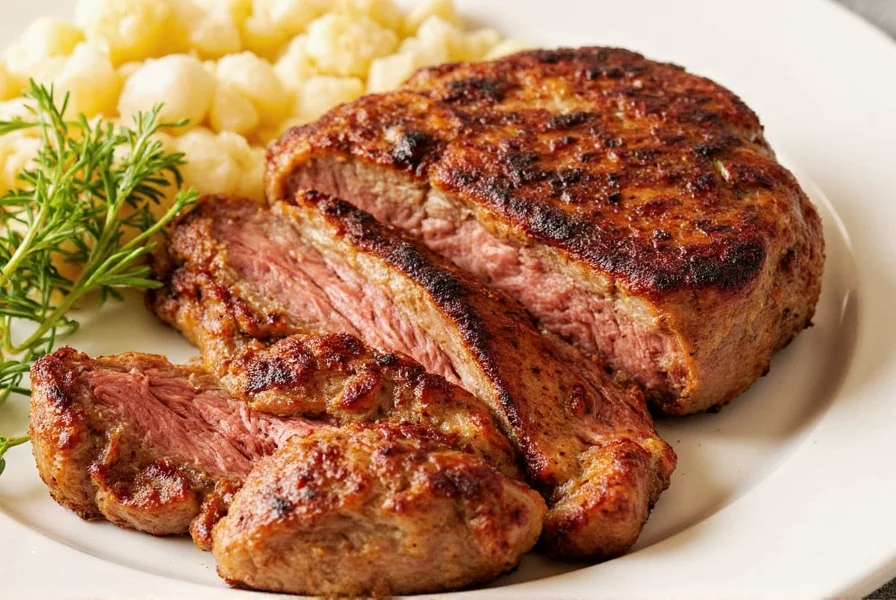
The Science Behind Seasoning Meat
To understand how seasoning works, it helps to think like a scientist. Here’s what happens when salt hits meat:
- Salt begins to break down proteins, allowing moisture to be retained rather than lost during cooking.
- Spices interact with fat and juices, releasing their aromatic compounds when heated.
- Acids like vinegar or citrus help tenderize while adding brightness to the overall flavor profile.
| Component | Role in Seasoning |
|---|---|
| Salt | Enhances natural flavors and helps retain moisture |
| Pepper | Adds heat and complexity |
| Paprika | Contributes sweetness and color |
| Cumin | Provides earthy depth |
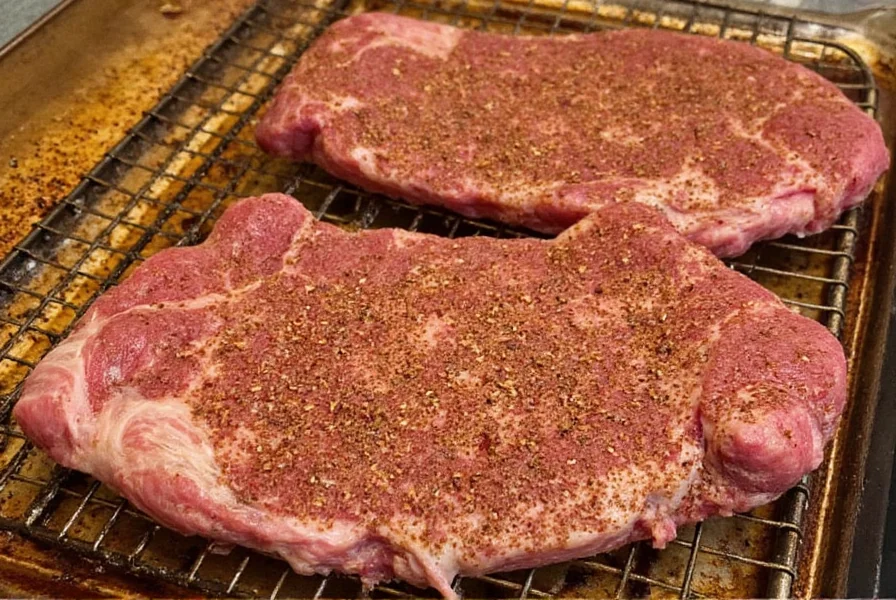
Historical Evolution of Seasoning Techniques
Modern seasoning practices evolved through centuries of culinary experimentation and scientific discovery. Historical records show distinct phases in how humans enhanced meat flavors:
| Era | Key Developments | Verifiable Evidence |
|---|---|---|
| Ancient (3000 BCE-500 CE) | Salt preservation dominated; Egyptian tombs contain salted meat offerings. Spices like black pepper were luxury imports via Silk Road. | Britannica: Salt History confirms salt's preservative use since Neolithic times. Met Museum documents pepper trade routes. |
| Medieval (500-1500 CE) | Spice blends became status symbols. Wealthy Europeans used excessive quantities to display affluence, while preserving techniques advanced with vinegar-based marinades. | British Library archives show spice inventories in royal kitchens. JSTOR research analyzes 14th-century cookbooks. |
| Industrial (1800-1950) | Commercial spice blends emerged. McCormick introduced pre-mixed seasonings in 1889, standardizing flavors previously dependent on regional availability. | McCormick's official history details early product development. NPR archives cover packaging innovations. |
| Modern (1950-Present) | Scientific understanding transformed practices. Harold McGee's 1984 On Food and Cooking explained protein-salt interactions, leading to timed salting protocols. | Food Chemistry journal validates timed salting effects. Serious Eats experiments confirm optimal windows. |
Top 7 Tips for Perfectly Seasoned Meat
- Season Early: For best results, season your meat at least 40 minutes before cooking. This allows the salt to penetrate and do its job.
- Don’t Skimp on Salt: Use enough to cover the surface without creating a visible layer. Remember, meat needs more seasoning than you might think.
- Use a Base Blend: A simple mix of salt, pepper, garlic powder, and paprika can elevate any protein.
- Rub It In: Especially for larger cuts, gently massage the seasoning into the meat to ensure even coverage.
- Avoid Moisture: Pat your meat dry before seasoning to prevent steaming instead of searing.
- Add Acid Later: Citrus or vinegar-based marinades should be added closer to cooking time to avoid over-tenderizing.
- Taste as You Go: Don’t forget to taste your seasoning blend before applying it!
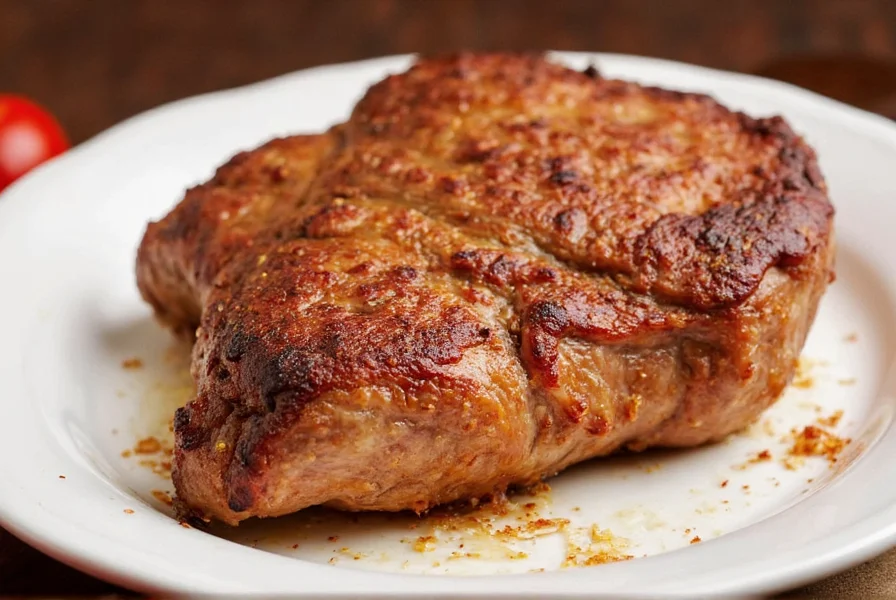
Contextual Limitations of Seasoning Methods
While general seasoning principles apply broadly, specific scenarios require adjustments. Professional kitchens and food science research identify critical boundary conditions:
| Scenario | Standard Recommendation | When It Fails | Research-Based Adjustment |
|---|---|---|---|
| Thin cuts (<1 inch) | Season 40+ minutes ahead | Excess moisture extraction prevents proper searing | Cook's Illustrated testing shows seasoning 0-15 minutes pre-cook optimizes crust formation for flank/skirt steaks |
| Acidic marinades | Marinate 2-4 hours for flavor penetration | Over-tenderizes delicate proteins like fish/chicken breast | USDA Food Safety guidelines specify 30-60 minute limits for acid-based marinades on tender meats |
| Low-sodium diets | Salt enhances flavor universally | Substitutes like potassium chloride alter protein behavior | American Heart Association research recommends umami boosters (mushroom powder, tomato paste) instead of direct salt substitutes |
Popular Spice Blends for Every Dish
Want to take your seasoned meat game up a notch? Try these tried-and-true blends:
| Blend Name | Main Ingredients | Best For |
|---|---|---|
| Classic BBQ Rub | Brown sugar, smoked paprika, chili powder, garlic powder | Brisket, ribs, grilled chicken |
| Mediterranean Mix | Oregano, thyme, lemon zest, black pepper | Lamb chops, grilled veggies, kebabs |
| Texas Dry Rub | Coffee grounds, cayenne, mustard seed, onion powder | Smoked brisket, pulled pork |
| Garlic Butter Blend | Garlic powder, dried parsley, salt, pepper | Steak, butter-seared scallops, roasted mushrooms |
Buying Guide: Choosing the Best Seasonings
Not all seasonings are created equal. Here’s a quick guide to help you pick the right ones for your kitchen arsenal:
| Product | Features | Best Use Case | Target Audience | Occasion |
|---|---|---|---|---|
| McCormick All-Purpose Seasoning | Simple, versatile, affordable | Daily cooking, quick meals | Beginners, families | Weekday dinners |
| Spice Hunter Organic Blend | Organic, non-GMO, high-quality sourcing | Health-conscious meals, clean eating | Wellness-focused cooks | Healthy lunches and dinners |
| Badia Fajita Seasoning | Mexican-inspired, contains dried peppers and lime | Fajitas, tacos, grilled vegetables | Tex-Mex lovers, party hosts | Taco nights, backyard cookouts |
| Williams Sonoma Mesquite Smokehouse Rub | Smoky, robust, premium quality | BBQ meats, grilled seafood | Grill masters, gourmet cooks | Summer barbecues, weekend feasts |
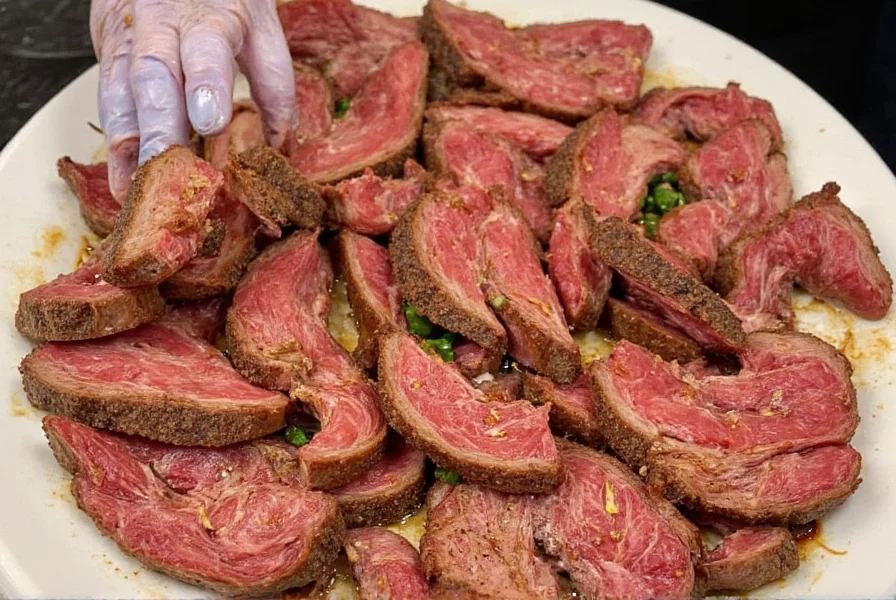
How to Match Seasoning to the Occasion
Choosing the right seasoning depends heavily on what kind of meal you're making. Here’s a cheat sheet to get you started:
- Everyday Meals: Keep it simple. Salt, pepper, and a bit of garlic go a long way.
- Weekend Cooking: Break out the bold blends — smoky rubs, sweet-spicy mixes, and everything with paprika.
- Holiday Roasts: Think herb-forward — rosemary, thyme, sage, and a splash of citrus zest.
- Special Events: Spicy blends like jerk seasoning or chipotle rubs keep things exciting.
- Family Gatherings: Stick with crowd favorites like classic barbecue rubs and Italian seasoning mixes.
Frequently Asked Questions About Seasoned Meat
What is seasoned meat?
Seasoned meat refers to meat that has been enhanced with spices, herbs, salt, or other flavorings to improve its taste, texture, and aroma. This process transforms simple ingredients into flavorful dishes and is a fundamental cooking technique used across cuisines worldwide.
How long before cooking should I season my meat with salt?
For best results, season your meat with salt at least 40 minutes before cooking, or even up to 24 hours in advance for larger cuts. This allows time for the salt to penetrate the meat and work its magic on both flavor and texture. For thinner cuts like steaks, 40-60 minutes is ideal, while roasts and brisket can benefit from seasoning 12-24 hours ahead.
Should I season meat before or after cooking?
The best approach is to season meat before cooking. Salt needs time to work its way into the meat to enhance flavor and texture. Seasoning after cooking only affects the surface. However, some delicate spices and herbs are best added after cooking to preserve their fresh flavor and vibrant color. For optimal results, use a two-stage approach: season with salt well in advance, and finish with fresh herbs after cooking.
What's the difference between a dry rub and a marinade?
A dry rub is a mixture of dry spices and herbs applied directly to meat, creating a flavorful crust when cooked. Dry rubs work primarily on the surface and are great for grilling or smoking. A marinade, on the other hand, is a liquid mixture containing acids (like vinegar or citrus) that both flavors and tenderizes meat by breaking down proteins. Marinades penetrate deeper but can make the surface too wet for proper searing if not patted dry before cooking.
How much seasoning should I use on meat?
A good rule of thumb is to use about 1 teaspoon of seasoning blend per pound of meat. For salt specifically, use approximately 1/2 teaspoon of kosher salt per pound. The key is to cover the entire surface evenly without creating visible mounds of seasoning. Remember that meat needs more seasoning than you might initially think because much of it dissolves or cooks off during the cooking process.
Can I use the same seasoning for different types of meat?
While some versatile blends work across multiple proteins, certain meats pair better with specific seasonings. For example, robust spices like cumin and smoked paprika complement beef well, while poultry often shines with herbs like thyme and rosemary. Pork is incredibly versatile and works with both sweet and savory blends. That said, your basic salt-and-pepper foundation works for virtually any meat, and from there you can customize based on the protein you're cooking.
How do I store homemade seasoning blends?
Store homemade seasoning blends in airtight containers away from heat, light, and moisture. Glass jars with tight-fitting lids work best. Properly stored, most dry spice blends will retain their potency for 6-12 months. Label your containers with the date you made the blend. For longest shelf life, keep them in a cool, dark pantry rather than near your stove where heat and humidity can degrade the spices more quickly.
Conclusion: Master the Art of Seasoned Meat
Perfectly seasoned meat isn’t just about throwing on some salt and pepper. It’s about understanding your ingredients, respecting your tools, and knowing how different flavors work together within specific contextual boundaries. Historical evolution shows how culinary science continuously refines these techniques—what worked for ancient preservation differs from modern flavor optimization.
Remember: seasoning is personal. Don’t be afraid to experiment within research-backed parameters, adjust for your specific cooking scenario, and find what makes your taste buds dance. After all, the goal isn’t just to cook meat—it’s to create memories around the table, one perfectly seasoned bite at a time.

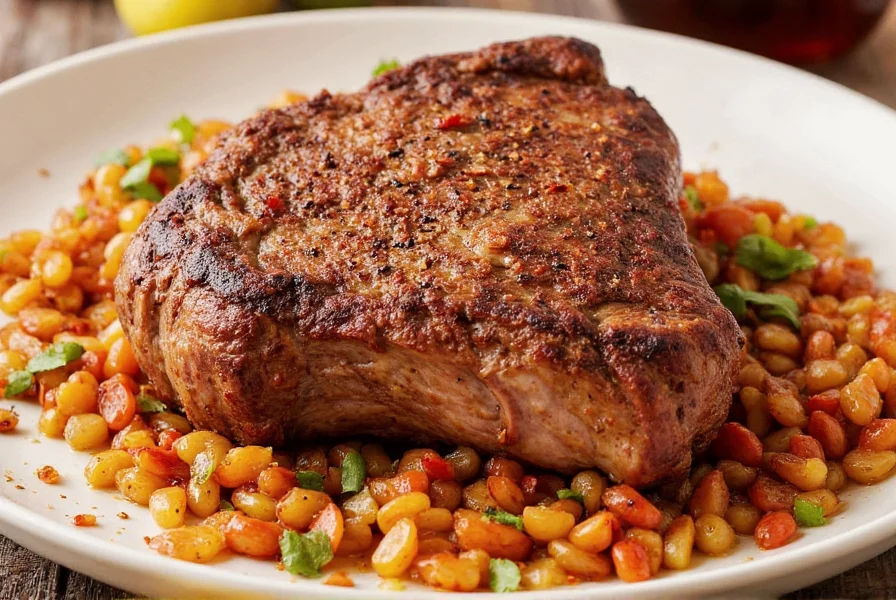









 浙公网安备
33010002000092号
浙公网安备
33010002000092号 浙B2-20120091-4
浙B2-20120091-4